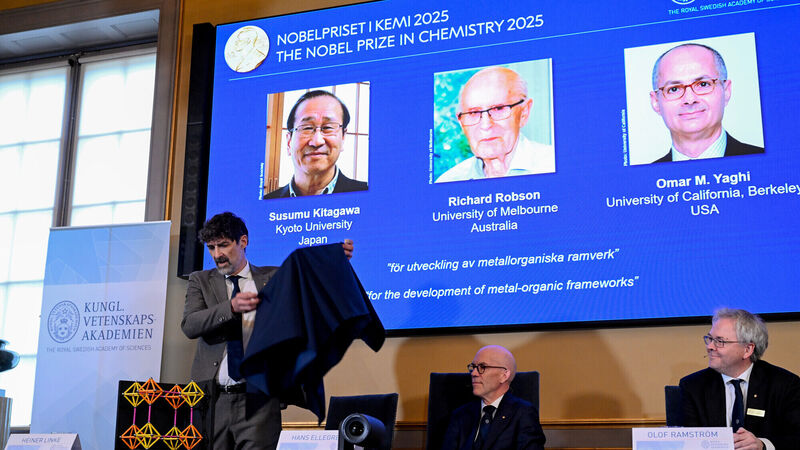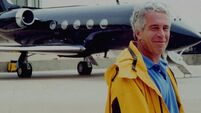British scientist among three winners of Nobel prize for chemistry

A British scientist is among three Nobel prize winners in chemistry for their work in the development of metal–organic frameworks.
Yorkshire-born Richard Robson, who studied at the University of Oxford, is affiliated with the University of Melbourne in Australia.











